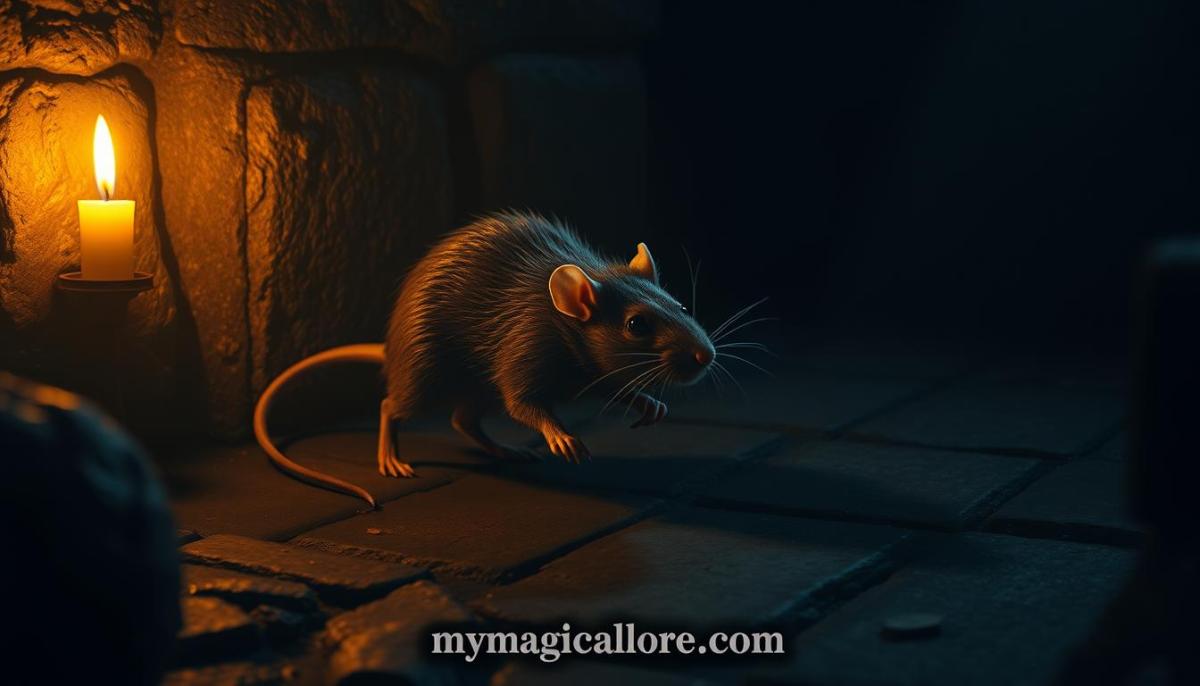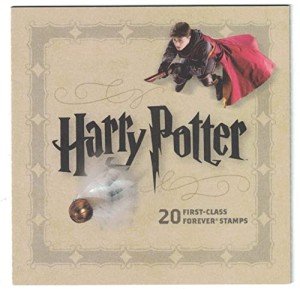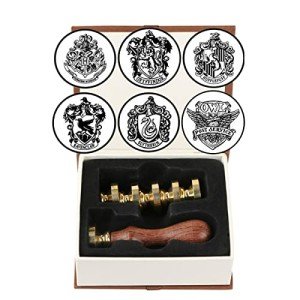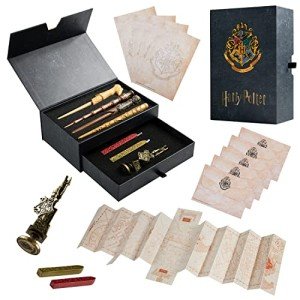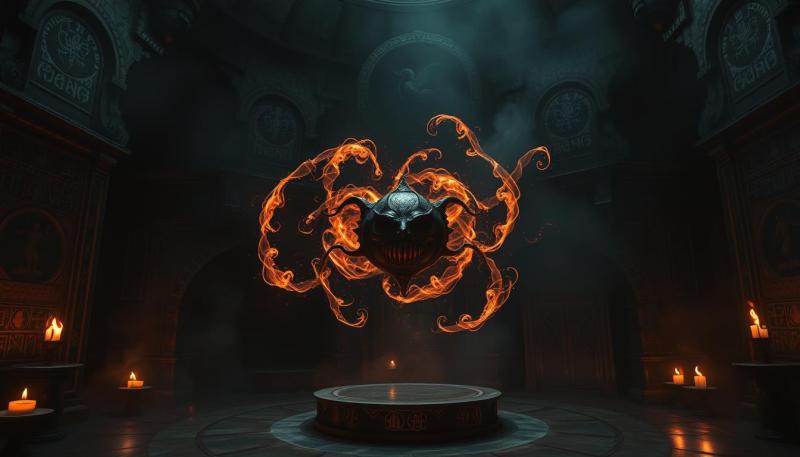When you think of the Harry Potter series, certain characters immediately come to mind. But there's one figure whose actions ripple through every book, even if he rarely takes center stage. Meet Peter Pettigrew – the unassuming wizard whose choices changed the course of magical history.
This complex character embodies the ultimate betrayal. Once part of James Potter’s inner circle, his shocking alliance with the Dark Lord set tragedy in motion. What makes him fascinating isn’t just his shape-shifting ability (though that rat form sure is memorable), but how his cowardice and desperation reveal the series’ deeper themes about loyalty and consequence.
Pettigrew’s story shows how even secondary characters can drive major plots. His survival after faking death? That twist redefined relationships between fan-favorite characters. His role in restoring You-Know-Who’s power? It literally resurrected the saga’s primary antagonist. We’ll explore how this conflicted wizard became the linchpin connecting light and darkness in J.K. Rowling’s world.
Key Takeaways
- Pettigrew’s betrayal directly caused the Potters’ deaths and Voldemort’s first downfall
- His rat Animagus form allowed 12 years of hidden survival
- The character embodies moral ambiguity in the wizarding world
- Key catalyst for Voldemort’s physical return in Goblet of Fire
- Demonstrates how fear can corrupt even childhood friendships
- His actions create lasting consequences for Sirius Black and Remus Lupin
Background: The Making of the Rat Guy in Harry Potter
Behind every villain’s story lies a series of choices. For Peter Pettigrew, it began with wanting to belong. At Hogwarts, he latched onto James Potter and Sirius Black – charismatic leaders who gave him protection but never true equality. Their bond as Marauders masked a terrifying vulnerability: Pettigrew’s need for approval outweighed his moral compass.
J.K. Rowling’s book reveals how his cowardice took root early. While James and Sirius thrived as rule-breakers, Pettigrew became the perpetual sidekick. This dynamic left him desperate to prove his worth, even if it meant aligning with darkness. His fateful decision to serve the Dark Lord wasn’t sudden – it grew from years of feeling overshadowed.
The ultimate betrayal came through misplaced trust. When the Potters chose Pettigrew as their Secret-Keeper instead of Sirius, they unknowingly handed their safety to a man already trading secrets. His choice to reveal their location didn’t just doom Lily and James – it shattered friendships that once seemed unbreakable.
What’s chilling isn’t the act itself, but how ordinary his motivations were. Fear of weakness, envy of stronger wizards, and a craving for significance turned a Gryffindor into a traitor. As the series shows, even heroes’ shadows can reshape destinies.
Origins and Early Life of Peter Pettigrew
Before the betrayal, there was a boy shaped by insecurities and a craving for acceptance. Peter Pettigrew’s story begins in a modest wizarding household, where whispers of inadequacy followed him like shadows. His family, though magical, lacked the prestige of pure-blood dynasties – a detail that quietly fueled his hunger for recognition.
Family and Childhood
Growing up in the 1960s, young Peter rarely stood out. His parents were neither Death Eaters nor Order members, existing in that murky middle ground of magical society. This ordinary upbringing left him yearning for something extraordinary – a desire that would later twist into desperation.
First Encounters at Hogwarts
Everything changed when he arrived at Hogwarts in 1971. Sorted into Gryffindor, Peter found himself orbiting Sirius Black and James Potter like a moth drawn to bonfires. Their confidence dazzled him, but fitting in required constant effort. “I’d watch him laugh at their jokes a beat too late,” Rowling writes, hinting at his struggle to belong.
Those first two years laid the groundwork for everything that followed. While his future friends mastered spells, Peter perfected the art of blending in. His talent for survival began here – not in dark magic, but in reading rooms and mirroring stronger personalities. Little did he know these skills would one day help him become Animagi… and later, a traitor.
Hogwarts Years and the Marauders’ Influence
School corridors hold secrets that shape futures. For Peter Pettigrew, Hogwarts became both a sanctuary and a pressure cooker. His time there forged friendships that would later fracture the wizarding world.
Sorting Into Gryffindor
The Sorting Hat’s choice stunned many. Peter lacked the boldness typical of Gryffindors. Yet his placement alongside Sirius Black and James Potter created an unlikely trio. "Bravery isn’t always loud," J.K. Rowling hints through Dumbledore’s later observations.
These first two years proved crucial. Peter clung to his friends’ confidence like a life raft. While they mastered Transfiguration, he mastered survival tactics – skills that later saved his life.
Friendships and Rivalries
The Marauders’ bond offered protection but demanded constant proof of loyalty. James and Sirius thrived on rule-breaking, while Peter often trailed behind. Their map-making adventures hid a truth: he felt perpetually outmatched.
Tensions simmered beyond their group. Though Draco Malfoy wouldn’t arrive for decades, Peter’s interactions with pure-blood families like the Malfoys revealed early divides. Lucius Malfoy’s disdain for "blood traitors" foreshadowed future conflicts.
| Trait | Peter Pettigrew | James/Sirius | Impact |
|---|---|---|---|
| Loyalty | Conditional | Unwavering | Led to betrayal |
| Magical Skill | Average | Exceptional | Fueled insecurity |
| Social Standing | Follower | Leaders | Created power imbalance |
Group pranks masked deeper issues. When Remus Lupin transformed monthly, Peter’s Animagus ability became his only claim to equality. These experiences didn’t just shape a student – they molded a man who’d later trade lives for survival.
Double Life: The Hidden Animagus Identity
Magic thrives in secrets, and few are as consequential as Peter Pettigrew’s ability to vanish into plain sight. Becoming an Animagus isn’t just about changing shape—it’s a months-long dance with danger that demands precision and nerve. Most wizards wouldn’t dare attempt it, but for those who succeed? The rewards are…complicated.
Transformation Process
Mastering the Animagus ritual required more than skill—it demanded obsession. Peter spent years studying under James and Sirius, hiding his progress even from friends. The process? A brutal marathon: holding a mandrake leaf in your mouth for a month, brewing a potion under lightning storms, and whispering an incantation until your throat burned.
Why choose a rat? Small, overlooked, perfect for slipping through cracks. His animal form became both shield and prison. “You become what suits your soul,” Fantastic Beasts hints—and nothing fit Peter better than a creature that survives by hiding.
Keeping this power secret was vital. Every twitch of his whiskers risked exposure. Yet this duality gave him leverage. While others saw weakness, he cultivated invisibility. The rat’s instincts sharpened his cunning, creating a predator disguised as prey.
What’s chilling isn’t the magic itself, but how he weaponized it. Unlike Lucius Malfoy’s flashy dominance, Peter’s power lay in being forgotten. His greatest trick? Making the world underestimate him until it was too late.
Harry Potter: Illustrated Chamber of Secrets Edition
Step into the magical world of Hogwarts with stunning illustrations that bring the charm of the Chamber of Secrets to life
Product information
SGD 52.10 SGD 31.37
Product Review Score
4.76 out of 5 stars
219 reviewsProduct links
The Dark Turn: Betrayal and the First Wizarding War
War forces choices that reveal true loyalties. For Peter Pettigrew, the First Wizarding War became a crucible where fear overpowered friendship. As battles raged, his desperation to survive morphed into something darker—a willingness to trade lives for safety.
His shift from Order member to double agent wasn’t sudden. Years of feeling overshadowed by James and Sirius festered into resentment. When Voldemort’s forces gained momentum, Peter saw an exit from his "sidekick" role—even if it meant condemning those he once called brothers.
Consider the stakes: By 1981, the war’s brutality left no room for half-measures. Peter’s decision to share the Potters’ location wasn’t just betrayal—it reshaped the conflict’s trajectory. Sirius Black’s wrongful imprisonment? A direct consequence of Peter’s staged death and disappearing act.
| Decision Point | Peter’s Choice | Alternative Path |
|---|---|---|
| Protecting Potters | Revealed their secret | Remain loyal to the Order |
| Framing Sirius | Faked his own murder | Confess and face justice |
| Post-War Survival | Lived as Scabbers | Fled the wizarding world |
The fallout was catastrophic. Families like the Malfoys exploited the chaos, while heroes like Sirius paid for crimes they didn’t commit. Peter’s actions proved that in war, even cowardice can be weaponized.
Looking back, his story warns us: Power doesn’t always roar. Sometimes, it whispers promises of survival—and twists ordinary men into architects of death.
Scabbers’ Years: Living Life in a Small Form
Imagine sharing your breakfast with a wizard who helped destroy your family. For twelve years, the Weasley family unknowingly did just that. Peter Pettigrew’s survival strategy? Living as Ron’s pet – a furry double agent sleeping in their pockets and eavesdropping on Order secrets.

His days involved bizarre contrasts. Mornings meant nibbling toast crusts while listening to Molly Weasley discuss Daily Prophet headlines. Afternoons? Watching young Ron bond with Rubeus Hagrid during Care of Magical Creatures lessons. Nights brought terror – especially when Crookshanks, Hermione’s cat, prowled nearby.
| Scabbers’ Role | Peter’s Reality | Impact |
|---|---|---|
| Ron’s Companion | Spy for Voldemort | Gained insider knowledge |
| Family Pet | Fugitive Wizard | Evaded Aurors |
| Seeming Victim | Master Manipulator | Framed Sirius Black |
“That cat’s got it in for Scabbers!” Ron often complained. Little did he know Crookshanks sensed the truth beneath the whiskers. The feline’s relentless stalking forced Pettigrew to stay vigilant – one wrong move could expose his double life.
What’s tragic isn’t just the deception, but the intimacy. When Ginny confided fears about Tom Riddle’s diary to her brother, Pettigrew heard every word. He witnessed Christmas mornings and hospital visits, all while plotting his master’s return. Twelve years of borrowed time… and borrowed love.
“Animals are far cleverer than wizards admit.”
This hidden chapter shaped the saga’s core themes. By embedding himself in a light-filled home, Pettigrew became living proof that darkness thrives where we least expect it. His story whispers a warning: Sometimes, the greatest threats wear the softest fur.
Critical Moments at the Shrieking Shack
Truths come screaming out in haunted places. The Shrieking Shack’s rotting floorboards and dusty air set the stage for one of the saga’s most explosive reveals. You could feel the tension crackle as Harry, Ron, and Hermione faced Sirius Black—only to learn their enemy wasn’t who they thought.
From Pet to Traitor
Imagine discovering your childhood pet is a wanted wizard. When Lupin and Sirius forced Peter Pettigrew back into human form, Ron’s shock mirrored ours. “You’ve been sleeping in my bed!” he yelled, voice cracking. The rat’s twelve-year deception collapsed in seconds.
Pettigrew’s cutting finger act sealed the horror. That silver hand later became a twisted symbol—both a tool for survival and a reminder of his cowardice. As he begged for mercy, we saw the man who’d traded Lily and James Potter’s lives for Voldemort’s favor.
| Character | Action | Result |
|---|---|---|
| Ron Weasley | Confronted Scabbers | Trust shattered |
| Sirius Black | Revealed truth | Innocence proven |
| Harry Potter | Witnessed betrayal | Parents’ fate clarified |
The prisoner Azkaban references here cut deep. Sirius’ wrongful imprisonment mirrored Peter’s freedom—a justice system failing both victim and villain. Lupin’s pained “I trusted you” underscored how the Secret Keeper betrayal poisoned friendships built over decades.
This scene didn’t just expose a rat. It showed how lies fester, and how one man’s fear could unravel countless lives. As the dust settled, alliances shifted—Harry spared Pettigrew, unknowingly shaping future battles. Sometimes, the darkest truths hide in plain sight.
“The past never stays where you leave it.”
Peter Pettigrew and Lord Voldemort's Return
Dark magic demands sacrifice, and no one understood this better than the wizard who traded his humanity for survival. In Harry Potter and the Goblet of Fire, we see Peter Pettigrew’s ultimate betrayal unfold—a chilling act that resurrected the series’ greatest threat.
The Ritual of Rebirth
The graveyard scene still haunts fans. Pettigrew brewed a potion using bone of the father, flesh willingly given (his own severed hand), and blood forcibly taken. Each ingredient symbolized loyalty twisted into horror. His silver prosthetic, gifted by Voldemort, became both reward and shackle.
What many miss? The killing twelve muggles wasn’t just cruelty—it erased witnesses. Pettigrew’s role as double agent reached its peak here. He’d spent years hiding, yet now stood center stage, orchestrating his master’s return.
Final Moments at Malfoy Manor
Chaos erupted when Harry and Hermione were captured. Pettigrew hesitated—a flicker of old loyalty—as he guarded the prisoners. That moment cost him. The silver hand Voldemort gave him turned traitor, choking its owner for showing mercy.
“You owe me a life debt!” Harry had once shouted. This debt, and Pettigrew’s desperate bid to rejoin master, sealed his fate. Even in death, he remained a pawn—a warning that fear-driven choices rarely end well.
Though he briefly got away after the Shrieking Shack, his story ended where it began: serving darker forces. The boy who craved belonging died alone, outmaneuvered by the very darkness he’d embraced.
Character Traits: Cowardice and Opportunism
Some choices stain the soul forever. Peter Pettigrew’s legacy in Harry Potter rests on two defining flaws: a spine-chilling cowardice and a knack for exploiting chaos. While others fought for ideals, he mastered the art of survival—even if it meant drowning friendships in blood.
His betrayal of James Potter and Lily Potter wasn’t impulsive—it was calculated. Fearing Voldemort’s rise, he traded their lives for a false sense of security. Compare this to Sirius Black, who risked everything to protect Harry, and the contrast stings. Courage isn’t just facing danger; it’s refusing to let fear dictate your choices.
| Trait | Peter Pettigrew | James/Sirius | Consequence |
|---|---|---|---|
| Loyalty | Shifts with danger | Unbreakable | Broken families |
| Courage | Self-preservation | Self-sacrifice | Life/death outcomes |
| Motivations | Fear-driven | Love-driven | Legacy of betrayal |
Even his "heroic" moments reek of desperation. When he hesitated to kill Harry at Malfoy Manor, it wasn’t mercy—it was panic. That silver hand choking him? Poetic justice for a man who chose power over principles.
The twelve muggles he murdered to fake his death reveal his moral bankruptcy. Unlike Draco Malfoy, who struggled with dark deeds, Pettigrew showed no remorse. His actions scream a truth: Opportunism without conscience destroys everything it touches.
“It takes a great deal of bravery to stand up to our enemies, but just as much to stand up to our friends.”
Dumbledore’s words cut to the core. Pettigrew’s story warns us that in battles between light and dark, the greatest threats often wear familiar faces. His traits didn’t just shape his fate—they became cautionary threads in the saga’s moral tapestry.
Harry Potter Gryffindor Lion 10-Inch Squishmallow
Cuddle up with your favorite House mascot and show off your Gryffindor pride!
Product information
SGD 22.13
Product Review Score
4.77 out of 5 stars
116 reviewsProduct links
Magical Abilities and the Art of Deception
Magic isn’t always about power—sometimes, it’s about disappearing when it matters most. Peter Pettigrew mastered this art, using spells not to dazzle, but to vanish. His greatest skill? Turning weakness into weaponized subtlety.
While Sirius Black and Albus Dumbledore wielded magic openly, Pettigrew thrived in shadows. His Animagus transformation required rare discipline—a skill even Rubeus Hagrid admitted few could sustain for years. But staying hidden was just the start. He altered memories, forged alliances, and manipulated events with the precision of a chessmaster.
| Wizard | Magical Focus | Key Strength | Weakness |
|---|---|---|---|
| Peter Pettigrew | Deception | Survival instincts | Moral cowardice |
| Sirius Black | Combat | Loyalty | Impulsiveness |
| Albus Dumbledore | Strategy | Wisdom | Over-trusting |
Consider the graveyard scene in Harry Potter and the Goblet of Fire. Pettigrew’s rudimentary potion-making resurrected Voldemort—a feat requiring dark magic most avoided. Yet his true genius lay in psychological manipulation. He convinced an entire generation he’d died heroically, framing Sirius without a second thought.
Even his escape from Hogwarts showcased cunning. By transforming mid-fall during the Shrieking Shack confrontation, he exploited split-second chaos. Unlike Dumbledore’s grand gestures, Pettigrew’s magic worked best when unnoticed—like silencing charms on doorways or subtle memory tweaks.
“Deception is a curtain even the brightest light struggles to pierce.”
But every trick has its cost. His silver hand—a reward for loyalty—became his executioner. The boy who fooled the world ultimately couldn’t deceive fate. In the end, his greatest magic trick failed: vanishing from history as anything but a cautionary tale.
Exploring the Main Theme: Rat Guy in Harry Potter
What transforms a friend into a weapon? Peter Pettigrew’s story isn’t just about betrayal—it’s a mirror reflecting how fragile loyalties shape entire worlds. His dual existence as Scabbers and Death Eater embodies the series’ core conflict: the battle between comfort and consequence.
The rat symbolism cuts deep. Small, overlooked creatures often escape notice—until they chew through foundations. Pettigrew’s animal form let him infiltrate the Weasleys’ home, whispering secrets to Voldemort while nibbling Ron’s leftovers. This duality mirrors how evil often hides in plain sight.
| Theme | Pettigrew’s Role | Impact |
|---|---|---|
| Betrayal | Secret-Keeper turned informant | Destroyed Potter family |
| Power Hunger | Sacrificed friends for status | Enabled Voldemort’s return |
| Moral Ambiguity | Saved Harry’s life once | Created narrative tension |
Hermione Granger saw through his act first. “Rats don’t live thirteen years,” she insisted, her logic cutting through sentimentality. Her skepticism highlights how easily trust can blind us—even clever witches miss threats sleeping in their dorm.
Time plays cruel tricks here. Twelve years as a pet eroded his humanity, while moments of hesitation (“You owe me!”) showed flickers of buried guilt. His rejoin master obsession wasn’t just fear—it was addiction to borrowed power.
“The world isn’t split into good people and Death Eaters.”
Pettigrew’s tragedy? He proved heroes and villains aren’t born—they’re forged through choices repeated daily. His life whispers a warning: Even the smallest cracks in character can collapse kingdoms.
Cultural Impact and Fan Reception
How do we measure a character’s legacy? For Peter Pettigrew, it’s the endless debates at fan conventions and the shivers readers still feel when flipping through Prisoner of Azkaban. His story lingers like a spell you can’t quite counter—a testament to J.K. Rowling’s knack for crafting morally complex figures.

Memorable Quotes and Scenes
Certain lines stick like Portkeys to our memories. Sirius Black’s gut-punch revelation—“You’ve been sleeping in my bed!”—still echoes in fandom discussions. Scenes like Pettigrew’s graveyard resurrection in Goblet of Fire became cultural touchstones, dissected for their moral implications.
| Quote | Context | Fan Reaction |
|---|---|---|
| “I didn’t want to die!” | Shrieking Shack confrontation | Sympathy vs. disgust debates |
| “He’s at Hogwarts…” | Secret-Keeper betrayal | Theory catalyst |
| “You owe me a life debt” | Malfoy Manor scene | Discussions on magical ethics |
Fan Theories and Interpretations
Could Neville Longbottom have followed Pettigrew’s path if sorted differently? This theory gained traction after Prisoner of Azkaban parallels emerged. Fans also speculate about his Animagus form’s symbolism—was the rat a reflection of his soul or a twisted survival tool?
| Theory | Basis | Popularity |
|---|---|---|
| Scabbers’ extended lifespan | Hermione Granger’s early suspicion | Widely accepted |
| Secret double agent for Dumbledore | Silver hand’s “mercy” moment | Niche but passionate |
| Neville as alternate traitor | Shared insecurities | Controversial |
“It is our choices, Harry, that show what we truly are.”
From Reddit threads to academic papers, Pettigrew’s legacy thrives. His story reminds us that even the smallest players can cast the longest shadows—in fiction and our own moral reckonings.
Legacy: How Peter Pettigrew Shapes the Story
Legacies aren’t always carved in stone—sometimes, they’re etched in betrayal. Peter Pettigrew’s fingerprints linger on every major arc in the Harry Potter series, twisting fates long after his final breath. His choices became ghostly hands steering characters toward reckonings they never saw coming.
Hogwarts at Sunrise Wall Poster - Harry Potter
Transform your space with the enchanting beauty of Hogwarts bathed in the warm glow of sunrise
Product information
SGD 27.34
Product Review Score
4.31 out of 5 stars
122 reviewsProduct links
Impact on Character Arcs
Consider Sirius Black’s story. Twelve years in Azkaban, framed by a friend he’d trusted—all because Pettigrew weaponized his own weakness. This deception didn’t just steal Sirius’ freedom. It reshaped Harry’s understanding of family, forcing him to rebuild trust from ashes.
Hermione Granger’s sharp instincts? They crystallized through Scabbers. Her early suspicion about the rat’s unnatural lifespan taught readers—and Ron—to question surface truths. “Logical thinking,” she’d say, “saves lives more often than spells.”
| Character | Impact | Lasting Effect |
|---|---|---|
| Harry Potter | Orphaned by betrayal | Defined his fight against Voldemort |
| Sirius Black | Wrongful imprisonment | Fueled desire for redemption |
| Hermione Granger | Trust issues | Sharpened investigative skills |
Albus Dumbledore saw the bigger picture. He once mused, “Our choices echo louder than our curses.” Pettigrew’s betrayal proved even small acts can unravel grand designs. The Potters’ murder? Voldemort’s resurrection? Both hinged on one man’s cowardice.
Yet there’s haunting balance in his downfall. The silver hand gifted by Voldemort choked him for showing mercy—a twisted poetic justice. His legacy whispers a truth: In Rowling’s world, no act fades quietly. Every choice ripples, and every secret eventually breathes.
“We’ve all got both light and dark inside us. What matters is the part we choose to act on.”
Conclusion
Choices echo longest when made in fear. Peter Pettigrew’s journey—from insecure Hogwarts student to Death Eater—reveals how desperation twists loyalties. His betrayal of Lily and James Potter wasn’t an isolated act. It was the culmination of years spent clinging to stronger forces, whether friends or foes.
Key moments define his legacy. The Shrieking Shack unmasking. The graveyard ritual that resurrected the Dark Lord. Even his final gasp at Malfoy Manor, where mercy became his undoing. Each choice carried weight, proving that survival often comes at soul-crushing costs.
What fascinates fans isn’t just his deception, but the lingering question: Could anyone resist such temptations? Ron Weasley’s shocked “You slept in my bed!” captures our collective disbelief. Yet Pettigrew’s story warns us—weakness dressed as pragmatism can topple empires.
His silver hand, a twisted reward for loyalty, symbolizes the series’ core truth. As Albus Dumbledore noted, “It is our choices that show what we truly are.” Even in death, this conflicted wizard challenges us to examine redemption’s fragile boundaries. Love him or loathe him, his legacy keeps the conversation alive.
